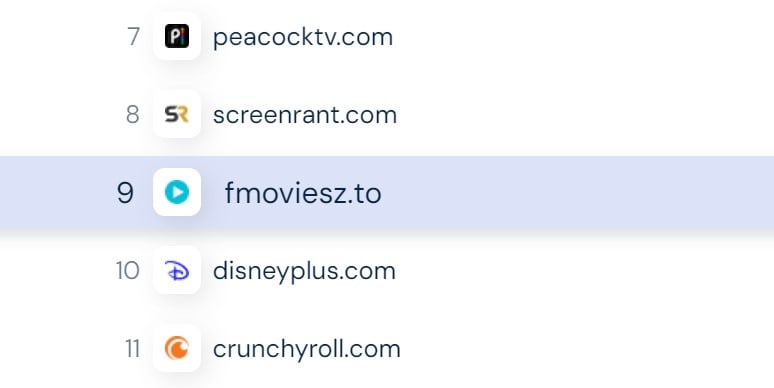 For a long time, pirate site blocking was regarded as a topic most U.S. politicians would rather avoid.
For a long time, pirate site blocking was regarded as a topic most U.S. politicians would rather avoid.
That’s no longer the case…
In recent years calls for a U.S. site-blocking regime have started to flare up. Last week, MPA CEO Charles Rivkin used his keynote speech at CinemaCon to double down on this demand, urging U.S. lawmakers to seriously consider site blocking, now that it’s proven to work in dozens of other countries.
Exhibit A: FMovies
MPA’s boss wasn’t secretive about the top target either. At a previous hearing in Congress, MPA’s Karyn Temple already gave lawmakers a walkthrough of the popular pirate streaming site FMovies and, in his CinemaCon speech, Rivkin put the same site under the spotlight.
“One of the largest illegal streaming sites in the world, FMovies, sees over 160 million visits per month and because other nations already passed site blocking legislation, a third of that traffic still comes from the United States,” Rivkin said.
Rightsholders can dramatize statistics but, in this case, the ‘threat’ might even be somewhat underplayed. According to SimilarWeb’s most recent traffic statistics, FMovies had more than 190 million visits in March. Nearly 40% of those visits are attributed to U.S. visitors.
More Visits Than Disney+
The site’s popularity continues to grow; FMovies just climbed to the 9th spot in SimilarWeb’s U.S. “Streaming & Online TV” category. This top ten listing is even more impressive if we consider the level of competition the pirate site is up against.
The top three slots are occupied by YouTube, Max, and Netflix, which are all multi-billion dollar operations. FMovies doesn’t come close to these, but it beats Disney+ in 10th place, and Crunchyroll just behind at 11th.

These comparisons don’t show the full picture. While FMovies has more U.S. web-based visits than the other two, app traffic isn’t counted. Disney+ likely has more app-related traffic. Still, the top ten listing signals that FMovies is massively popular in the United States.
U.S. Congress Visit
At the House Subcommittee Hearing last December, many lawmakers were surprised to see how easily the site can be accessed. U.S. Representative Ted Lieu tested this live as he accessed FMovies on his phone during the proceeding.
“I just went on my phone and went on FMovies and it’s still up. And I can watch Willy Wonka for free without paying for it. Why don’t the online service providers block it right now, like today?” Lieu asked.
With no Internet providers present at the hearing, this question remained unanswered. However, ISPs are not likely to act voluntarily, at least not without assurances.
One of the main reasons why site blocking hasn’t come to the U.S. yet is the absence of no-fault injunctive relief. That would allow for court orders, compelling Internet providers to take action, without imposing any type of liability.
Lots to Gain, Much to Lose
The recent traffic numbers confirm that FMovies is a major threat to Hollywood and we expect it to serve as “Exhibit A” in the site blocking discussions going forward.
Blocking access to websites isn’t a perfect anti-piracy tool and rightsholders know that. There are plenty of options to circumvent these measures, as we have seen in other countries where these were implemented.
That said, blockades undoubtedly make it harder to access websites and academic research suggests that the overall effects on legitimate consumption are positive.
While FMovies hasn’t responded to the controversy, there must be some concern there too. The site isn’t fazed by copyright law but does rely on advertising revenue, and it’s no secret that advertisement rates for U.S. traffic are the highest, by far. If U.S. traffic tanks, that will certainly be felt.
From: TF, for the latest news on copyright battles, piracy and more.
Powered by WPeMatico
